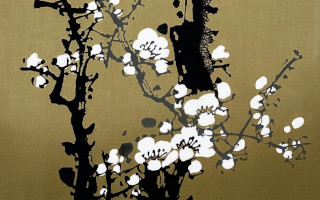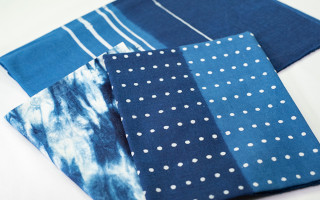
The appeal of indigo-dyed Tenugui
This issue introduces our popular series of Awa (in old name) Indigo dyed Tenugui, which are dyed in Tokushima Prefecture.
The appeal of indigo-dye
The distinctive features of Tenugui indigo dye are the depth of the indigo color and the gentle feel of the natural dye in the hand. Our indigo-dyed Tenugui are personally dyed by Shiro Harada, an indigo dyeing artist from Tokushima, in his studio. The indigo dye is also handmade by him. The beautiful designs are made to bring out the attractiveness of the indigo dyeing process several times over.

“Tade-Ai (Dyer’s knotweed)”
The process of turning tade indigo into a dye is a very long process. After the harvested tadpole leaves are chopped into small pieces, they are dried in the sun. After storing it between straw mats, the dye solution, called “Sukumo”, is produced by repeatedly mixing it with water.
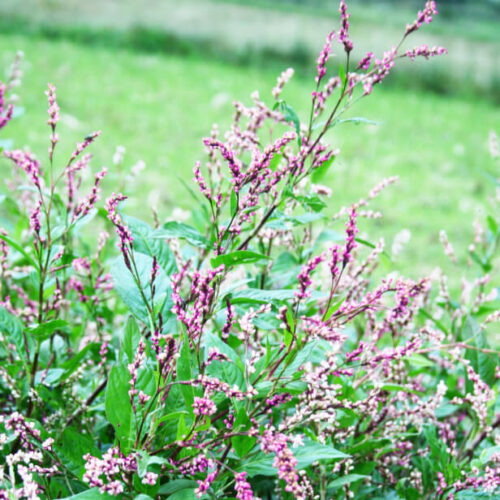
Indigo dyeing benefit
In some periods, indigo-dyed fabrics were used to ”detoxify” and ”hemostasis” in war zones. Indigo-dyed Tenugui have ”deodorant” and ”insect repellent” effects, and the natural dyes are also gentle on the skin, making them safe to use for delicate skin and babies in present-day.
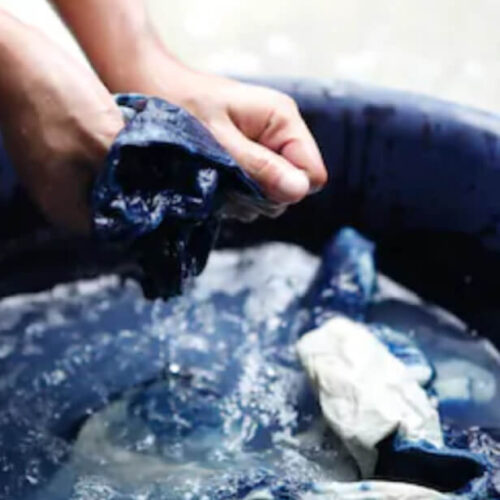
JAPAN BLUE
The indigo colour of indigo dyeing is known as “JAPAN BLUE” and it attracts many fans in Japan and abroad.
This uniquely beautiful colour produced by Japanese nature evokes a sense of depth and profundity. It is a true expression of Japanese culture it self.
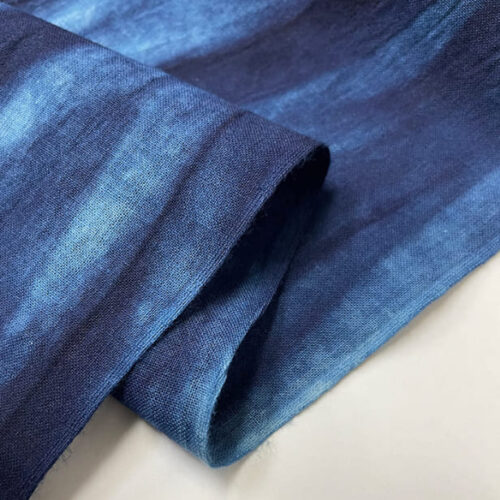
Indigo dyes are said to be ”living dyes”, and their colours take root in the fabric over a period of five or ten years, giving the colours a deeper appearance.
We would be happy if you enjoy the charm of the indigo-dyed Tenugui, which is etched year by year as you use it for a long time



